Tired of the usual Tokyo sights? Discover 23 hidden gems in Tokyo—from secret gardens and retro alleys to mystical temples and riverside escapes. Local favorites you won’t find in typical travel guides!
Table of Contents
1. Yanaka Ginza Shopping Street (Taito Ward)
A retro shopping street steeped in old Tokyo charm
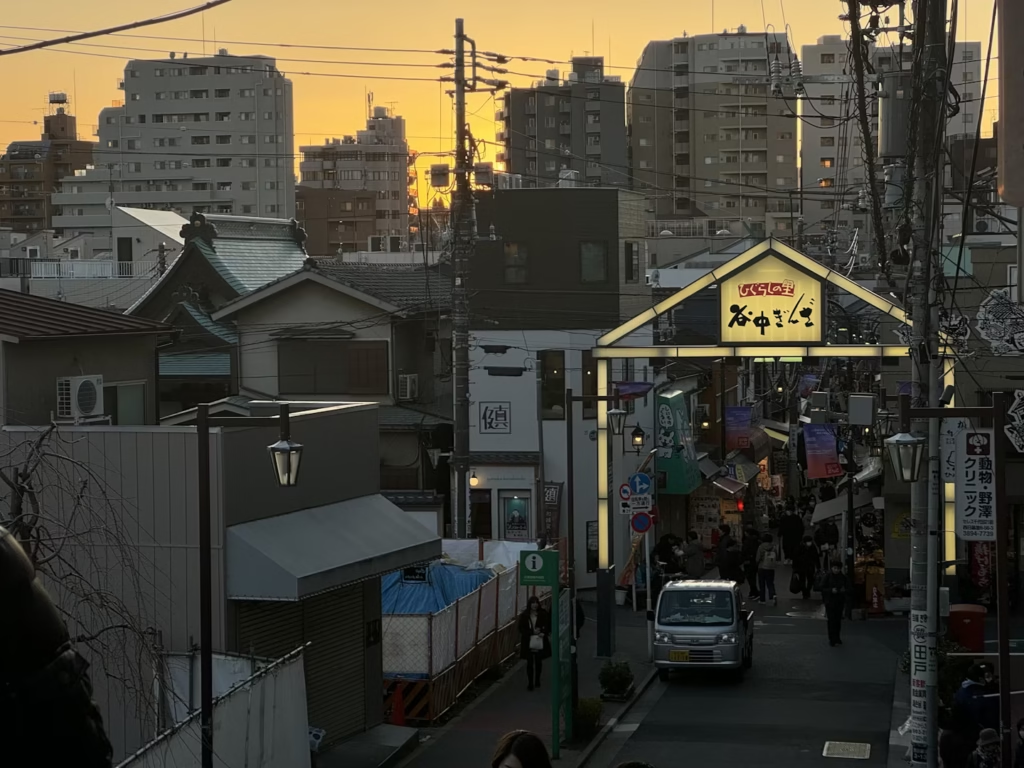
Yanaka Ginza, located in Taito Ward, is a nostalgic street that feels like a step back in time. Dating back to the 1950s, it exudes the atmosphere of a classic downtown Tokyo neighborhood. The surrounding area is filled with Showa-era charm, making it a perfect place for a slow, scenic stroll.
You’ll find quirky cafés inside old wooden houses, traditional sweets shops, and specialty stores. Street food is a highlight here—crispy croquettes from the butcher, sweet roasted sweet potatoes, and more. It’s a must-visit for foodies who want to snack while they walk.
Nearby, visit the historic Yanaka Cemetery, where many famous figures are buried, or take in the seasonal beauty of Nezu Shrine. It’s a quiet pocket of Tokyo where you can wander, nibble, and soak in the vintage vibes.
Info
- Address: Around 3-chome, Yanaka, Taito-ku, Tokyo
- Phone: N/A
- Hours: Varies by shop
- Closed: Varies by shop
- Access: 5 min walk from JR Nippori Station or Tokyo Metro Sendagi Station
- Admission: Free
- Website: www.yanakaginza.com
2. Akagi Shrine (Shinjuku Ward)
A sleek shrine tucked into one of Tokyo’s trendiest neighborhoods
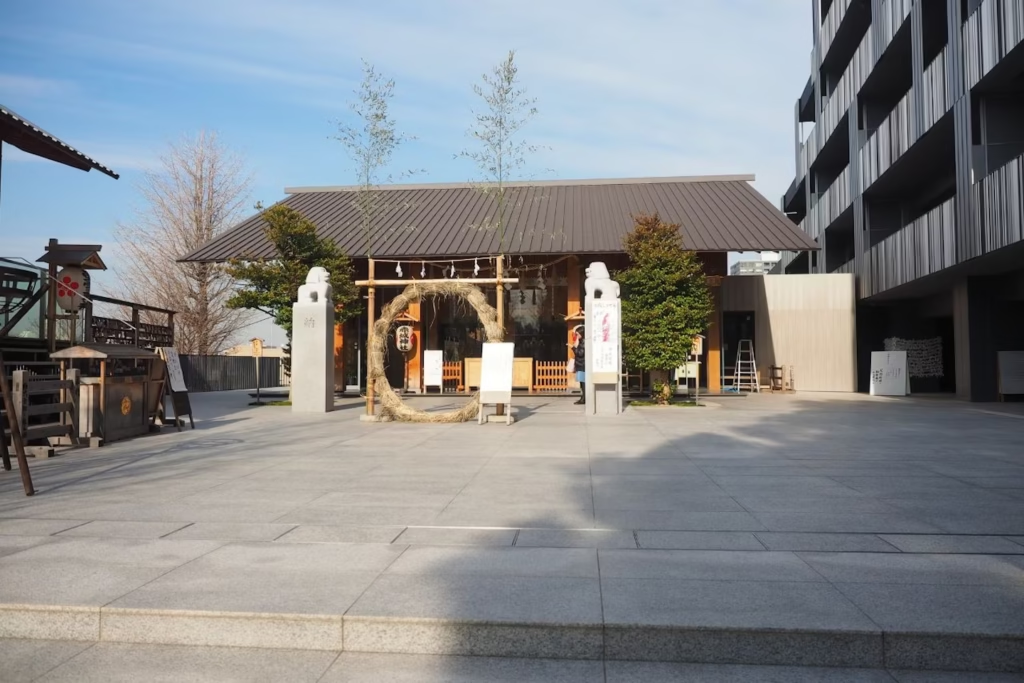
Nestled in Kagurazaka, one of Tokyo’s most stylish areas, Akagi Shrine blends tradition with modern design. Originally founded about 700 years ago by Shigeharu Ogohiko, who moved from Mount Akagi during the Kamakura period, the shrine now stands as a peaceful oasis in the city.
Worshipped here are Iwatsutsuo-no-Mikoto and Akagi-hime-no-Mikoto, bringing blessings for happy relationships and good fortune. You’ll also find enshrined the same deities as at Ise Grand Shrine—including Amaterasu, Toyouke, and the three creation gods.
Despite being in the heart of Tokyo, the grounds are serene and spiritually uplifting. After visiting the shrine, take a walk through Kagurazaka’s quaint streets filled with cafés, historic shops, and gourmet dining spots.
Info
- Address: 1-10 Akagi Motomachi, Shinjuku-ku
- Phone: 03-3260-5071
- Hours: 9:00–17:00 (Office), but the shrine grounds are open 24 hours
- Access: 1 min walk from Kagurazaka Station (Tokyo Metro), 8 min from Ushigome-Kagurazaka Station (Toei Oedo Line)
- Admission: Free
- Website: www.akagi-jinja.jp
3. Gotokuji Temple (Setagaya Ward)
The temple believed to be the birthplace of the maneki-neko (beckoning cat)
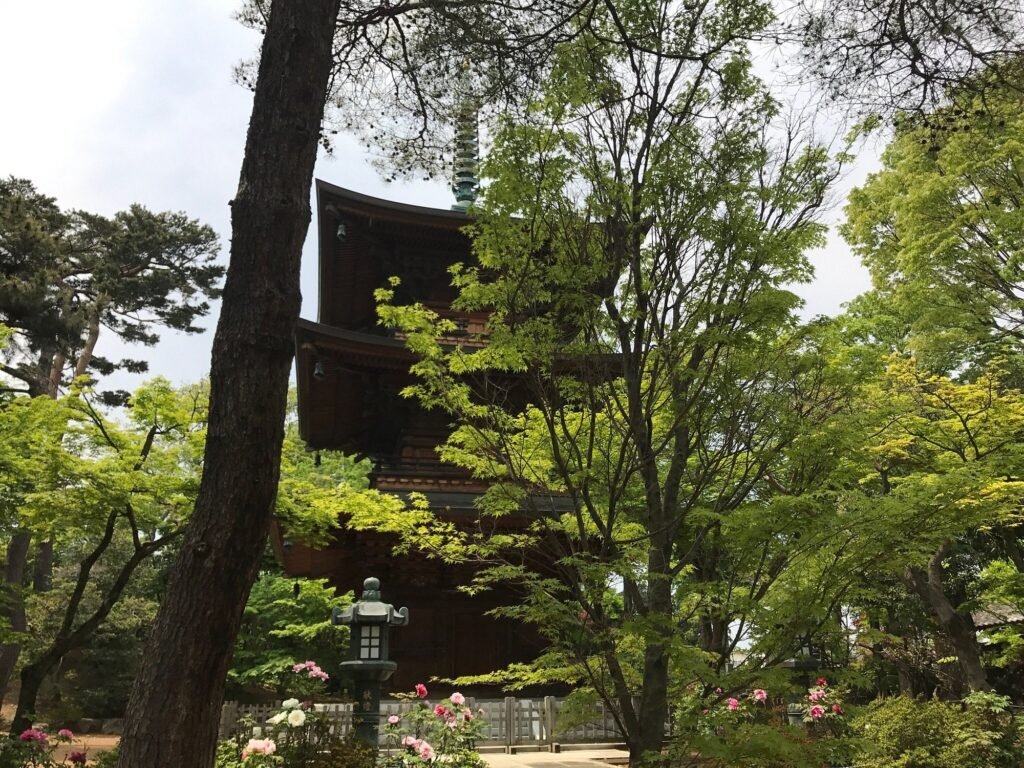
Gotokuji Temple is a Soto Zen temple in Setagaya, historically linked to the powerful Ii clan of the Edo period. It’s known not only for its beautiful temple grounds and heritage buildings but also for its unique connection to the beloved maneki-neko.
Legend has it that a cat beckoned Lord Ii Naotaka into the temple just before a thunderstorm hit, sparking the tradition of the lucky cat. Today, hundreds of beckoning cat figurines line parts of the temple—charming, slightly eerie, and completely unforgettable.
The peaceful grounds are dotted with stone lanterns, old trees, and Buddhist statues, offering a tranquil break from the city.
Info
- Address: 2-24-7 Gotokuji, Setagaya-ku
- Phone: 03-3426-1437
- Hours: Late Mar – Late Sep: 6:00–18:00 / Late Sep – Late Mar: 6:00–17:00 (Temple Office: 8:00–15:00)
- Access: 5 min walk from Miyanosaka Station (Tokyu Setagaya Line) or 15 min walk from Gotokuji Station (Odakyu Line)
- Admission: Free
- Website: gotokuji.jp
4. Nezu Museum (Minato Ward)
Where ancient beauty meets modern design
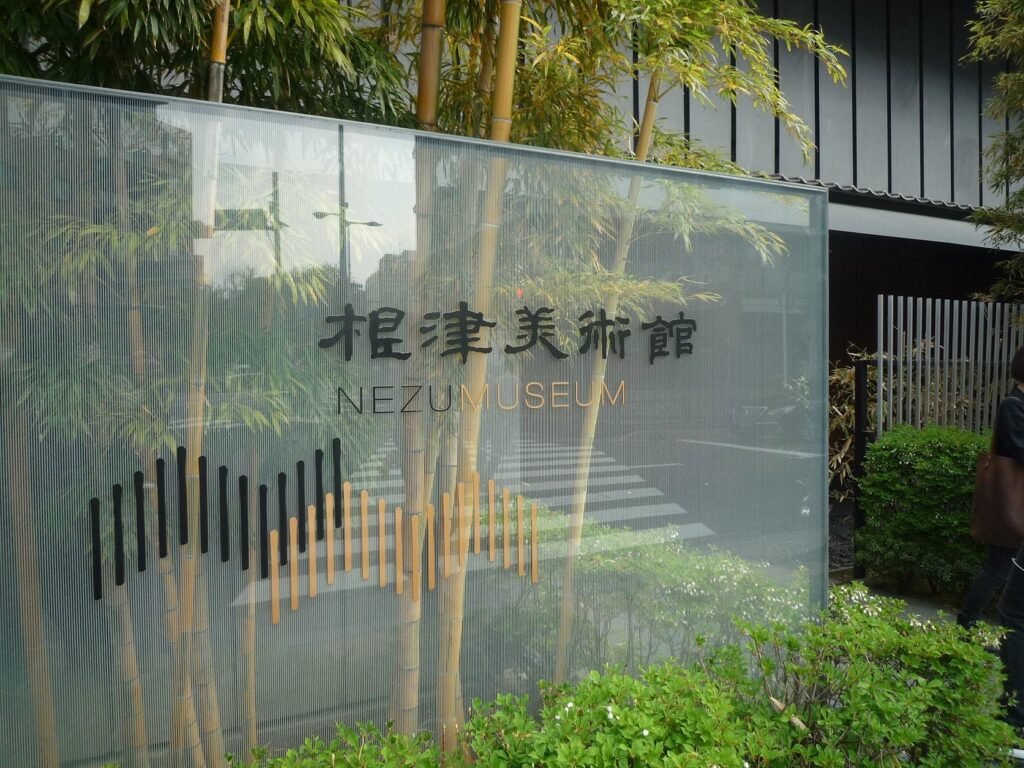
Established in 1941, Nezu Museum is home to a stunning collection of Japanese and East Asian art, including national treasures and important cultural properties. The core of the museum was built around the private collection of industrialist Kaichiro Nezu.
Its modern architectural design is by Kengo Kuma (the architect of the Olympic Stadium), and it blends sleek lines with traditional aesthetics. Inside, you’ll find calligraphy, ceramics, paintings, and seasonal exhibitions. Outside, a serene Japanese garden with tea houses and bamboo groves adds to the immersive experience.
Info
- Address: 6-5-1 Minami-Aoyama, Minato-ku
- Phone: 03-3400-2536
- Hours: 10:00–17:00 (Last admission at 16:30)
- Closed: Mondays (or Tuesday if Monday is a national holiday), exhibit changeovers, New Year holidays
- Access: 8 min walk from Omotesando Station (Tokyo Metro)
- Admission:
・Online booking: Adults ¥1,500, Students (high school+) ¥1,200
・At the door: Adults ¥1,600, Students ¥1,300
・Free for junior high school and under - Website: www.nezu-muse.or.jp
5. Koishikawa Korakuen Garden (Bunkyo Ward)
A historic Japanese garden right beside Tokyo Dome
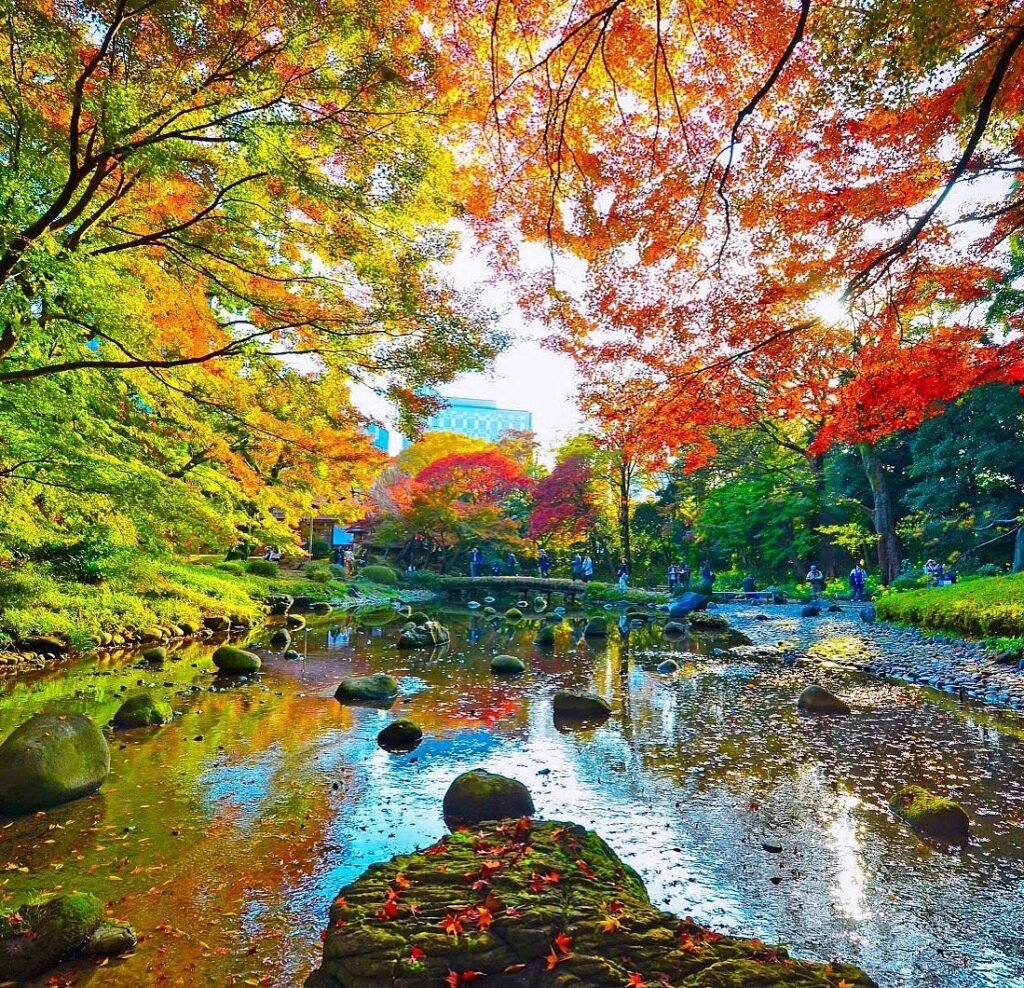
Just steps from the bustling Tokyo Dome, Koishikawa Korakuen is one of Tokyo’s oldest and most beautiful gardens. It was built in 1629 by Tokugawa Yorifusa, the first lord of the Mito branch of the Tokugawa family, and completed by the famous Mito Komon, Tokugawa Mitsukuni.
Designed in the strolling garden style, it features ponds, stone bridges, teahouses, and miniature landscapes inspired by Chinese aesthetics. Despite being in the heart of Tokyo, it’s a quiet haven where you can enjoy seasonal beauty—plum blossoms in early spring, vibrant red maple in the fall, and lush greens in summer.
Info
- Address: 1-6-6 Koraku, Bunkyo-ku, Tokyo
- Phone: 03-3811-3015
- Hours: 9:00–17:00 (Last entry at 16:30)
- Closed: New Year holidays
- Access: 5 min walk from Suidobashi Station (JR), 6 min from Korakuen Station (Tokyo Metro)
- Admission: Adults ¥300, Seniors 65+ ¥150, Free for children & Tokyo-resident junior high students
- Website: tokyo-park.or.jp
6. Bunkyo Civic Center Observation Lounge (Bunkyo Ward)
A free panoramic view of Tokyo with minimal crowds
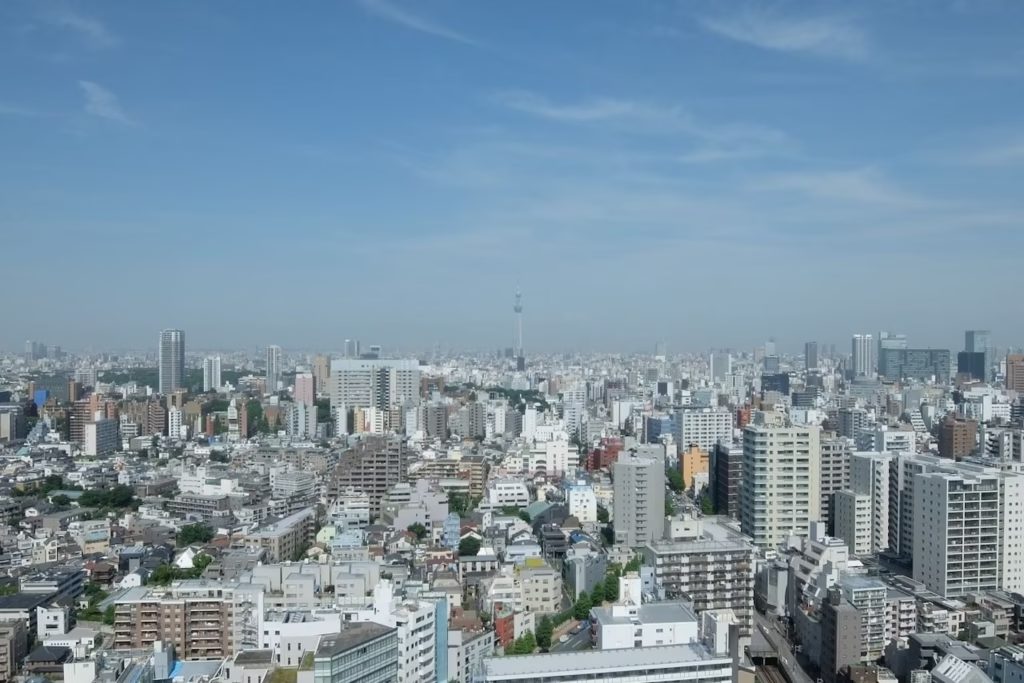
Want jaw-dropping views of Tokyo—without spending a yen? Head to the 25th floor of the Bunkyo Civic Center. Overlooking Tokyo Dome and Koishikawa Korakuen, this public observation deck gives you sweeping views of Tokyo Skytree, Shinjuku’s skyscrapers, Mount Fuji (on clear days), and even Tsukuba Mountain.
It’s rarely crowded, and open until 8:30 PM, making it a great hidden spot for sunsets and nighttime views.
Info
- Address: 1-16-21 Kasuga, Bunkyo-ku, Tokyo
- Phone: 03-5803-1162
- Hours: 9:00–20:30
- Closed: Year-end holidays, full-building closures
- Access: 1 min walk from Korakuen Station (Tokyo Metro) or Kasuga Station (Toei Lines)
- Admission: Free
- Website: city.bunkyo.lg.jp
7. Hatoyama Hall (Bunkyo Ward)
A romantic Western-style mansion with a touch of political history
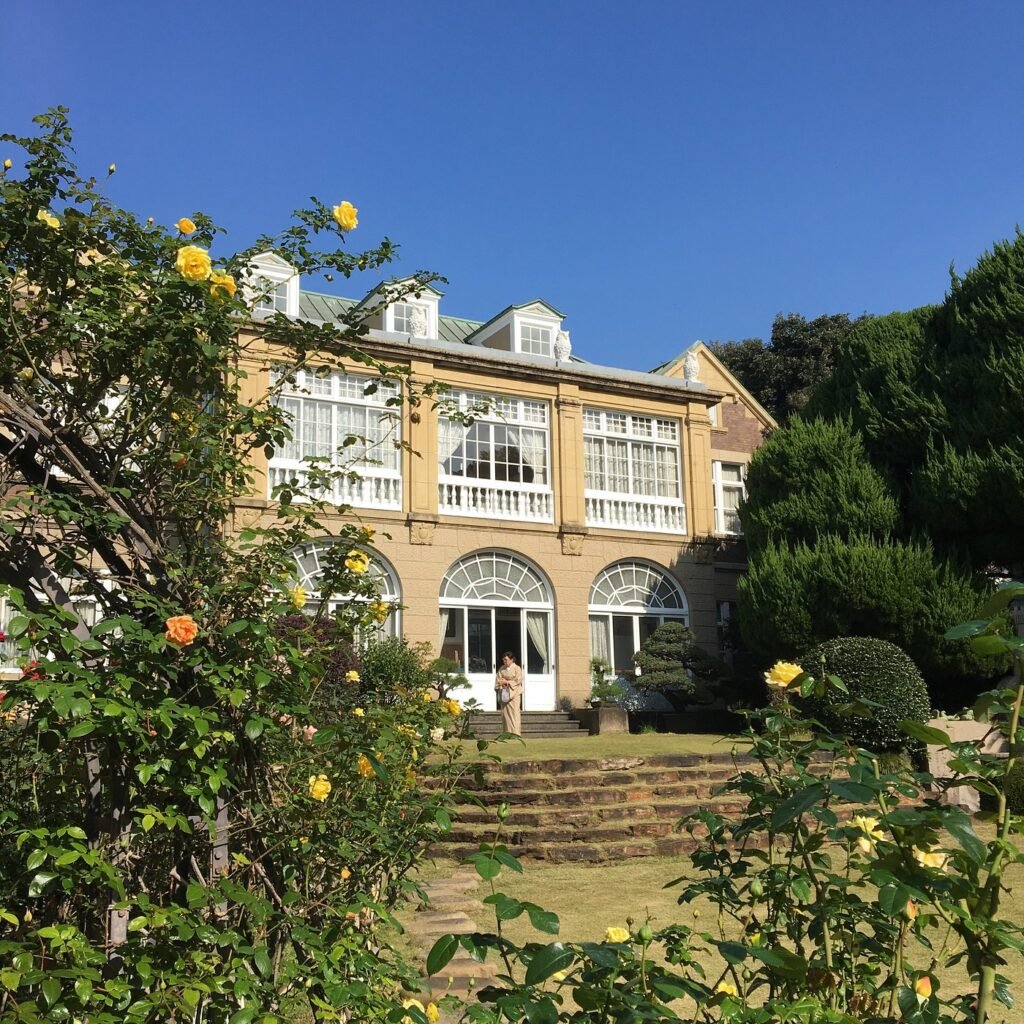
Hatoyama Hall, also known as Otowa Palace, was once the residence of former Prime Minister Ichirō Hatoyama. Built in 1924, this elegant European-style home is now open to the public, with period furnishings, stained glass by master artist Sanchi Ogawa, and a gorgeous rose garden that blooms with over 90 varieties.
It’s a dreamy, peaceful retreat in the middle of the city—and a must for fans of architecture, design, or vintage charm.
Note: Currently closed until March 31, 2024, for renovations.
Info
- Address: 1-7-1 Otowa, Bunkyo-ku, Tokyo
- Phone: 03-5976-2800
- Hours: 10:00–16:00 (Last entry at 15:30)
- Closed: Mondays (next day if Monday is a holiday), January–February, August
- Access: 7 min walk from Edogawabashi Station, 8 min from Gokokuji Station (Tokyo Metro)
- Admission: Adults ¥600, Seniors ¥500, Students ¥400, Children ¥300
- Website: hatoyamakaikan.com
8. Toyo Bunko Museum (Bunkyo Ward)
Step into a fantasy world of books and culture
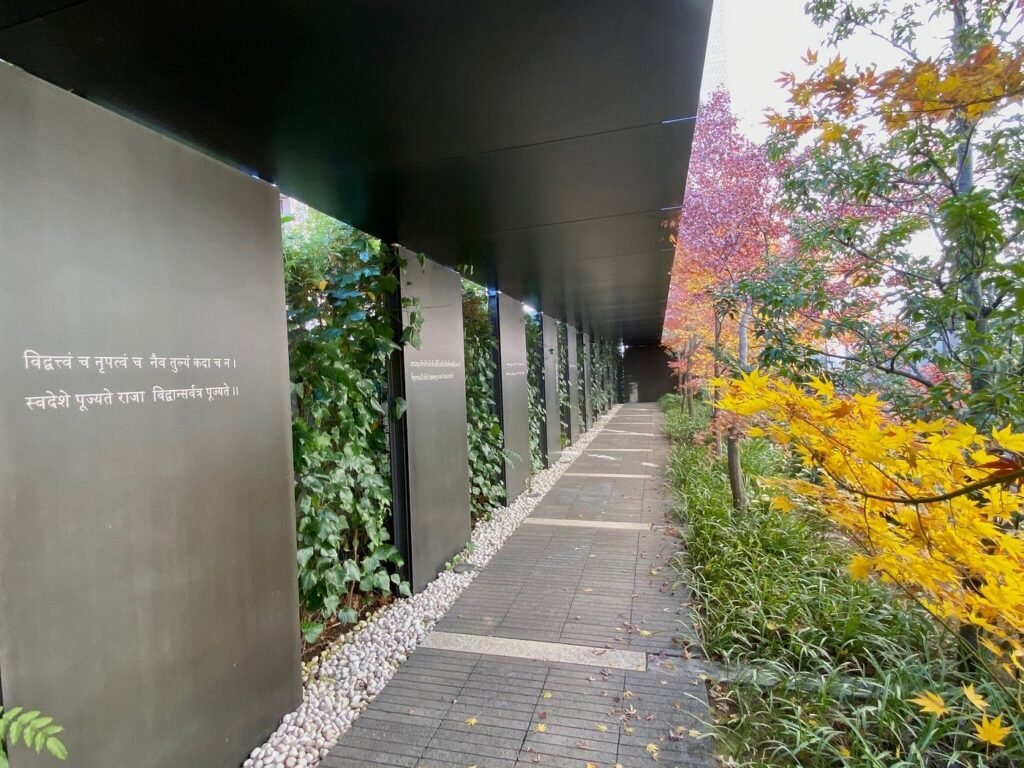
Tucked away in Honkomagome, the Toyo Bunko Museum is part of one of the world’s largest Asian studies libraries. With over 1 million volumes and exhibitions on Eastern history and culture, the highlight here is the “Bookshelf Theater,” a breathtaking floor-to-ceiling library space that feels straight out of a magical storybook.
Special exhibitions, national treasures, and rare maps make it a dream for lovers of history, literature, and design.
Info
- Address: 2-28-21 Honkomagome, Bunkyo-ku, Tokyo
- Phone: 03-3942-0280
- Hours: 10:00–17:00 (Last entry at 16:30)
- Closed: Tuesdays (or next weekday if Tuesday is a holiday), New Year
- Access: 8 min walk from Komagome Station (JR/Yamanote/Metro), 7 min from Sengoku Station (Toei Mita Line)
- Admission: Adults ¥900, Seniors ¥800, University ¥700, High School ¥600, Under middle school free
- Website: toyo-bunko.or.jp
9. Arakawa Yuen Amusement Park (Arakawa Ward)
A retro amusement park with Tokyo’s slowest roller coaster
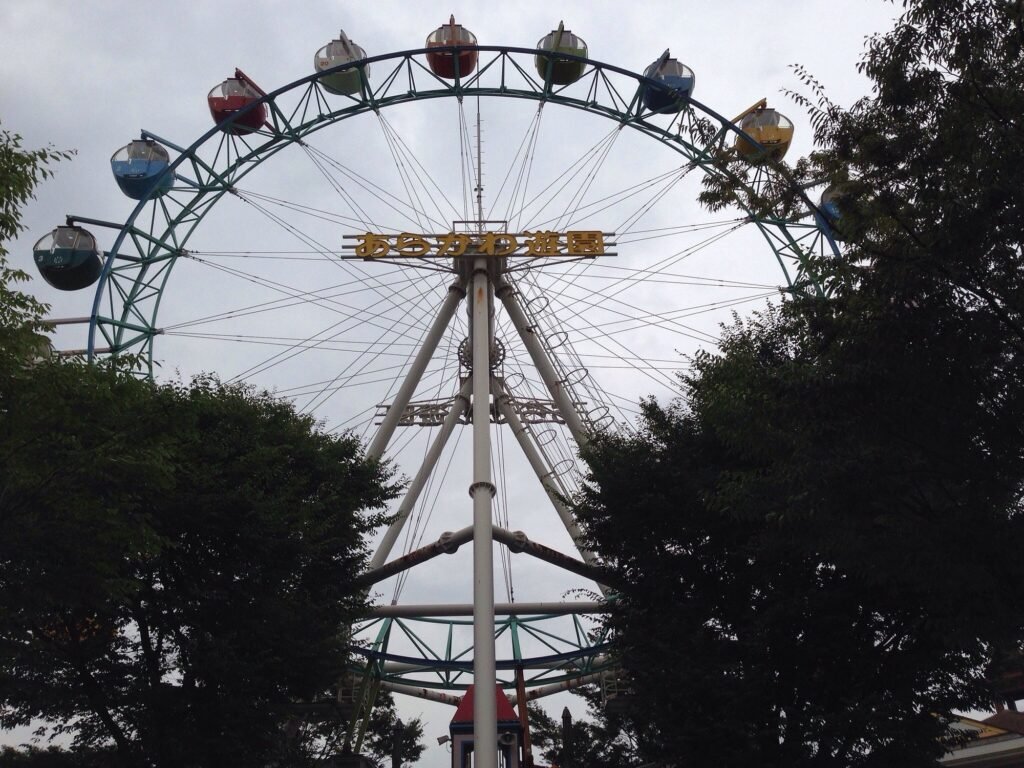
Operating since 1922, Arakawa Yuen is Tokyo’s only ward-run amusement park and recently got a major upgrade in 2022. It’s a delightfully low-key place with classic rides like a merry-go-round and Ferris wheel, plus Japan’s slowest roller coaster (topping out at 13.7 km/h!).
There’s also a petting zoo, splash zone, fishing pond, and family-friendly cafés. With stroller rentals and nursing rooms, it’s especially ideal for families with young kids.
Info
- Address: 6-35-11 Nishiogu, Arakawa-ku
- Phone: 03-3893-6003
- Hours: 9:00–17:00 (Open until 20:00 on some nights)
- Closed: Tuesdays (or next weekday if Tuesday is a holiday), New Year
- Access: 3 min walk from Arakawa Yuenchi-mae Station (Toden Arakawa Line)
- Admission: Adults ¥800, Seniors & Jr. High ¥400, Kids ¥200, Preschoolers Free
- Website: arakawa.tokyo.jp/yuuen
10. Fukagawa Edo Museum (Koto Ward)
Travel back in time to the Edo period
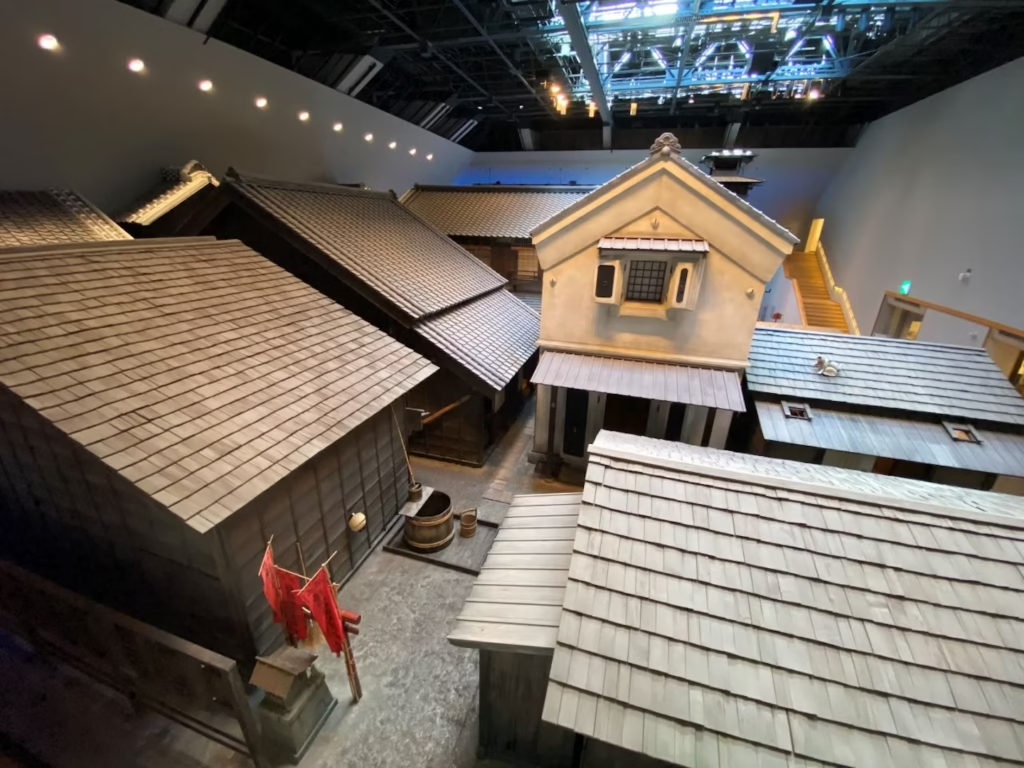
At Fukagawa Edo Museum, it’s not just about viewing artifacts—you walk through a full-scale recreation of an Edo-period neighborhood. The museum features life-sized homes, shops, and even a canal, all inside a massive atrium that feels like a movie set.
You can rent a kimono and take photos in full period style, and enjoy occasional live performances like shamisen music or storytelling. Perfect for history buffs or anyone curious about life in old Tokyo.
Info
- Address: 1-3-28 Shirakawa, Koto-ku
- Phone: 03-3630-8625
- Hours: 9:30–17:00 (Last entry at 16:30)
- Closed: 2nd & 4th Mondays, New Year, exhibition changeovers
- Access: 3 min walk from Kiyosumi-Shirakawa Station (Toei Oedo Line / Tokyo Metro Hanzomon Line)
- Admission: Adults ¥400, Children ¥50
- Website: kcf.or.jp/fukagawa
11. Fukagawa Fudoson (Koto Ward)
A beloved neighborhood temple with fiery rituals and lively energy

Tucked into Tokyo’s historic Fukagawa area, Fukagawa Fudoson is a branch of the famous Naritasan Shinshoji Temple and has been cherished by locals since 1703. It’s dedicated to Fudo Myoo, a fierce guardian deity believed to help purify the body and soul, and grant heartfelt wishes.
What sets this temple apart? The goma fire rituals—held daily—where wooden sticks symbolizing worldly desires are ritually burned in front of the deity. The rhythmic chants and crashing taiko drums fill the hall with raw, spiritual energy. It’s intense, beautiful, and utterly unforgettable.
The temple hosts bustling market days on the 1st, 15th, and 28th of each month, bringing old-town Tokyo charm to life.
Info
- Address: 1-17-13 Tomioka, Koto-ku
- Phone: 03-3641-8288
- Hours: 8:00–18:00
- Closed: Open daily
- Access: 2 min walk from Monzen-Nakacho Station (Tokyo Metro Tozai Line), 5 min from Exit 6 (Toei Oedo Line)
- Admission: Free
- Website: fukagawafudou.gr.jp
12. Kiyosumi Garden (Koto Ward)
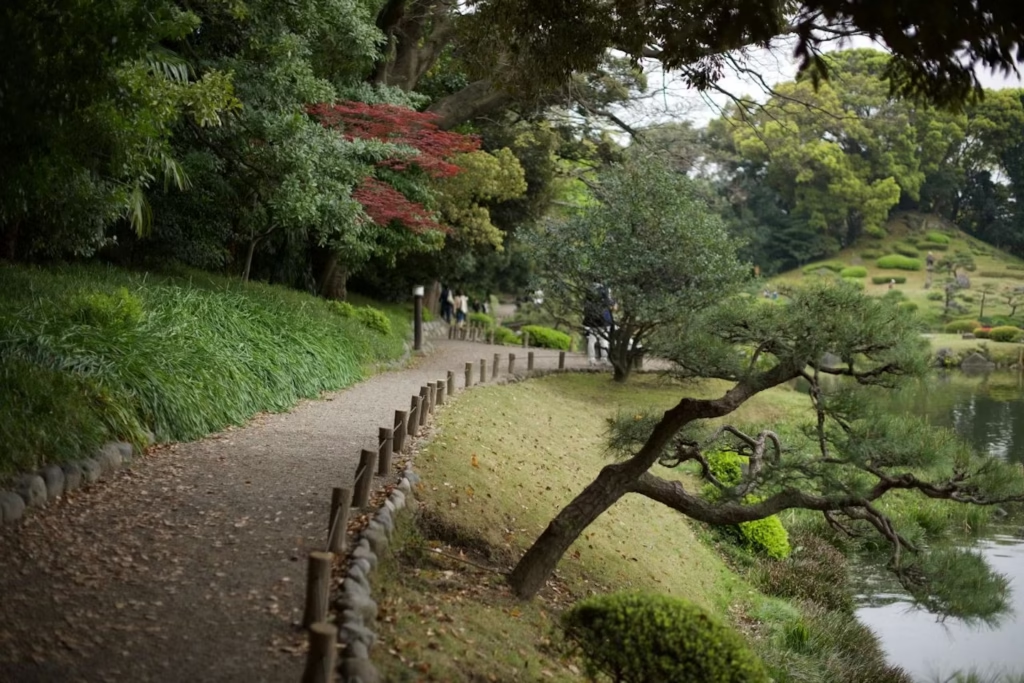
A picture-perfect Japanese garden with artfully placed stones and ponds
Kiyosumi Garden is a lush oasis in the middle of Tokyo, filled with carefully selected stones, still ponds, and elegant bridges. Created in the Meiji era by Iwasaki Yataro, founder of the Mitsubishi conglomerate, this strolling-style garden reflects the refined taste of the time.
The highlight? “Iso-watari” stepping stones that seem to float across the water—don’t forget your camera! And if you’re into geology, this place is a treat: the stones around the garden are handpicked from famous quarries all over Japan.
It’s peaceful, poetic, and deeply soothing—an ideal escape from Tokyo’s rush.
Info
- Address: 3-3-9 Kiyosumi, Koto-ku
- Phone: 03-3641-5892
- Hours: 9:00–17:00 (Last entry at 16:30)
- Closed: Year-end holidays
- Access: 3 min walk from Kiyosumi-Shirakawa Station (Toei Oedo Line / Hanzomon Line)
- Admission: Adults ¥150, Seniors ¥70, Children free
- Website: tokyo-park.or.jp
13. Log Road Daikanyama (Shibuya Ward)
Stylish shopping stroll along a transformed railway track
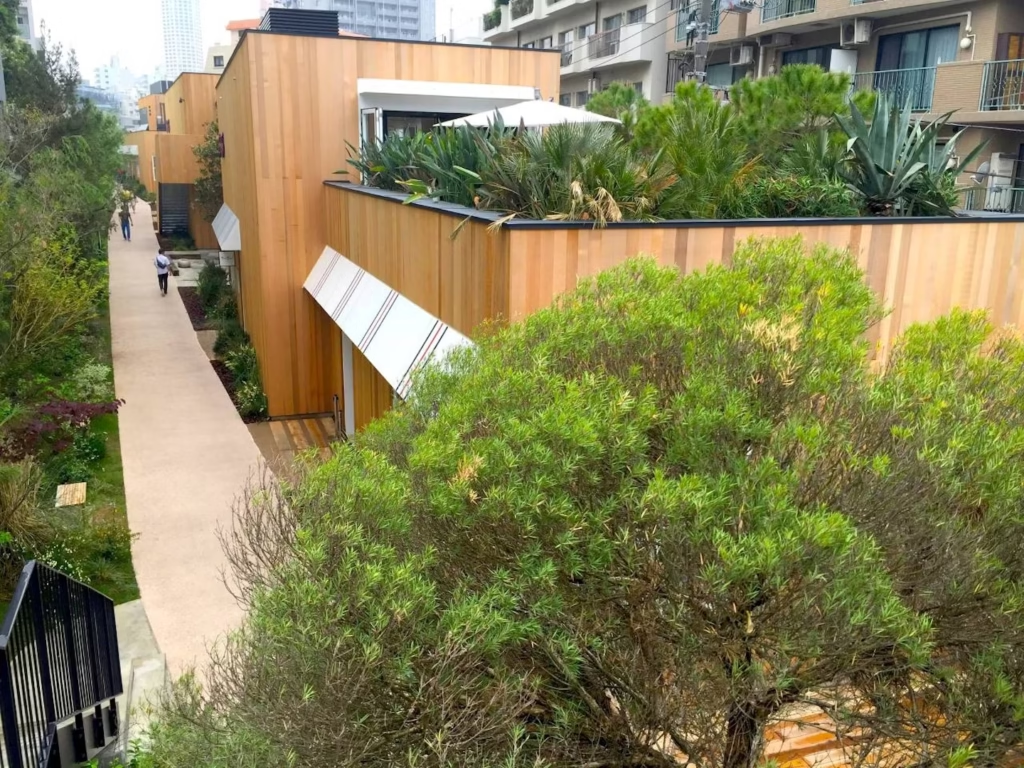
In trendy Daikanyama, where boutiques and art galleries meet tree-lined streets, Log Road is a hidden pathway lined with sleek shops and hip cafés—built along the old Tokyu rail line.
The walkway stretches 220 meters, and along the way you’ll find bakeries, a craft beer brewery, minimalist lifestyle stores, and more. It’s all about a slow, stylish wander with good coffee and good design.
It’s the kind of place where locals go on lazy Sundays, and savvy visitors feel like they’ve stumbled into Tokyo’s coolest secret.
Info
- Address: 13-1 Daikanyamacho, Shibuya-ku
- Phone: N/A
- Hours: Varies by shop
- Closed: Varies by shop
- Access: 4 min walk from Daikanyama Station (Tokyu Toyoko Line)
- Admission: Free
14. Ad Museum Tokyo (Minato Ward)
A museum where vintage ads meet modern creativity
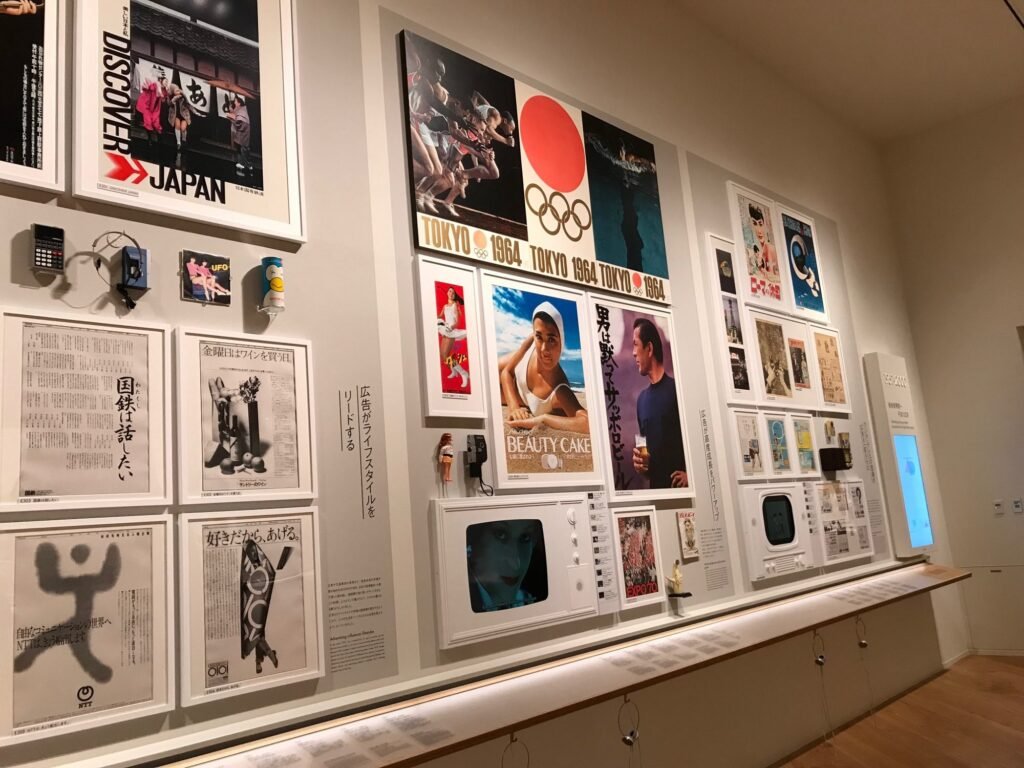
Ad Museum Tokyo is Japan’s only museum dedicated to advertising—and it’s surprisingly fascinating. Located in the sleek Caretta Shiodome complex, it houses over 330,000 historical items that trace how ads evolved from Edo-era flyers to modern campaigns.
It’s not just for marketers—anyone curious about visual culture, Japanese aesthetics, or pop history will enjoy the rotating exhibits, interactive displays, and creative installations. Plus, it’s free!
Info
- Address: B2F Caretta Shiodome, 1-8-2 Higashi-Shimbashi, Minato-ku
- Phone: 03-6218-2500
- Hours: 12:00–18:00
- Closed: Mondays, plus occasional holidays
- Access: 1 min walk from Shiodome Station (Toei Oedo Line), 3–4 min from Shimbashi Station (multiple lines)
- Admission: Free
- Website: admt.jp
15. La Vita, Jiyugaoka (Meguro Ward)
A little slice of Venice hidden in Tokyo’s chicest neighborhood
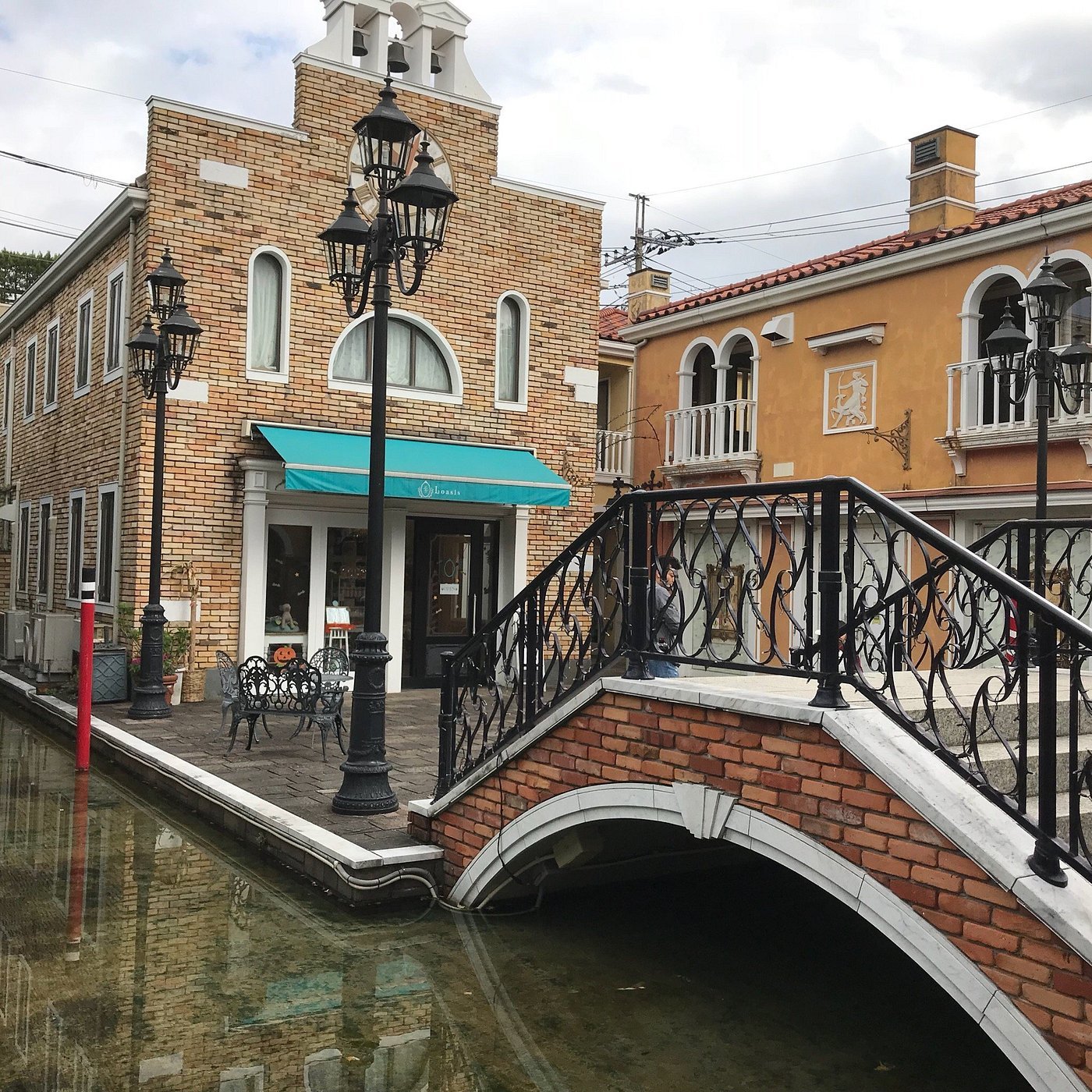
La Vita (ラ・ヴィータ) in Jiyugaoka is one of Tokyo’s most charming urban secrets—a tiny re-creation of Venice complete with a canal, gondola, and brick-paved streets. Though it’s not a theme park, the atmosphere is picture-perfect and very romantic.
This petite plaza houses select fashion and lifestyle shops, and makes for dreamy Instagram shots. Wander past Venetian-style buildings, peek into elegant boutiques, or grab a coffee and soak up the vibe.
It’s Tokyo’s own Italian daydream—and it’s just a short walk from the station.
Info
- Address: 2-8-2 to 2-8-3 Jiyugaoka, Meguro-ku
- Phone: 03-3723-1881
- Hours: 8:00–20:00 (varies by shop)
- Closed: Varies by shop
- Access: 5 min walk from Jiyugaoka Station (Tokyu Toyoko & Oimachi Lines)
- Admission: Free
- Website: jiyugaoka-abc.com
16. Edo-Tokyo Open Air Architectural Museum (Koganei City)
A walkable time machine with real historic buildings
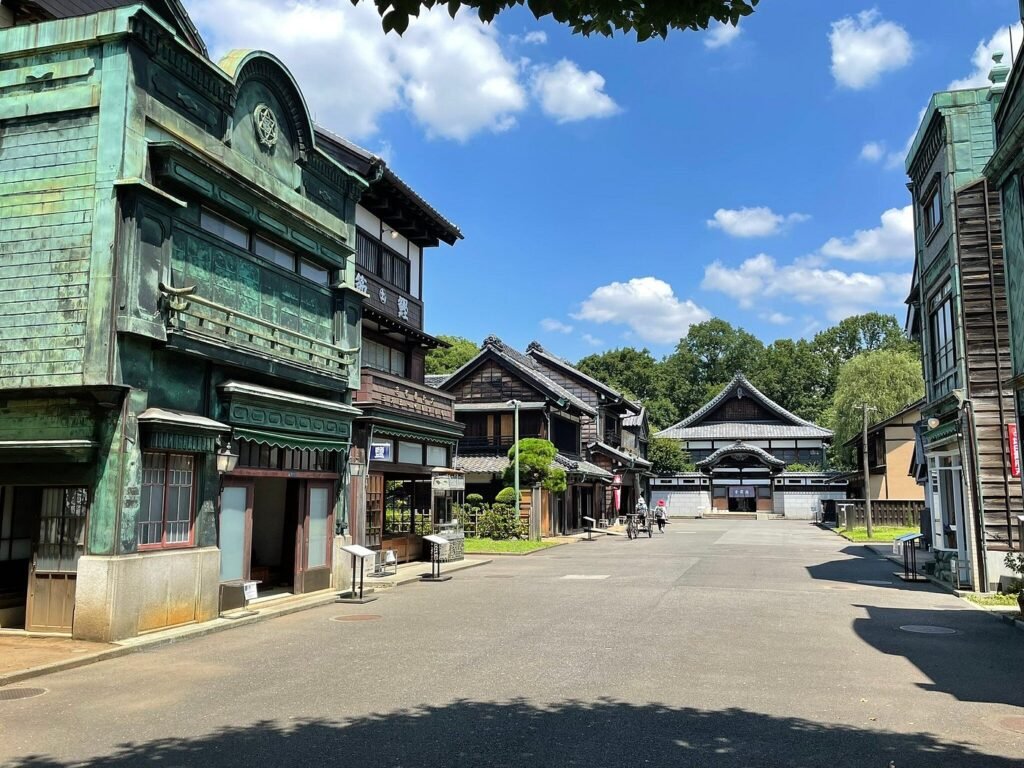
Step into the past at this outdoor museum tucked inside Koganei Park. Opened in 1993, the Edo-Tokyo Open Air Architectural Museum preserves and reconstructs significant buildings from the Edo period to early Showa era—including samurai residences, merchant shops, public bathhouses, and even a 1950s-era photo studio.
You’ll find yourself in the middle of real streetscapes, complete with wooden signs, tatami floors, and vintage appliances. It’s not just for history lovers—this museum also inspired settings in Studio Ghibli’s Spirited Away. Yes, really.
Give yourself at least two hours—it’s that immersive.
Info
- Address: 3-7-1 Sakura-cho, Koganei-shi, Tokyo
- Phone: 042-388-3300
- Hours: Apr–Sep: 9:30–17:30 / Oct–Mar: 9:30–16:30
- Closed: Mondays (next day if Monday is a holiday), year-end holidays
- Access: 5 min bus ride from Musashi-Koganei Station, get off at Koganei Park West Gate
- Admission: Adults ¥400, Students ¥320, Seniors/Teens ¥200, Kids free
- Website: tatemonoen.jp
17. HANA・BIYORI (Inagi City)
A floral fantasy park where nature meets digital art

Opened in 2020 next to Yomiuriland amusement park, HANA・BIYORI is a next-generation flower theme park filled with color, light, and whimsy. Inside its huge greenhouse, you’ll find Japan’s largest “flower chandelier,” a small otter sanctuary called Kawauso Biyori, and immersive digital projections that make flowers bloom around you in real time.
It’s magical and refreshing—a place to breathe, play, and marvel. You’ll also find a Starbucks surrounded by greenery, and even a hot spring facility to end your day.
Info
- Address: 4015-1 Yanokuchi, Inagi-shi, Tokyo
- Phone: 044-966-8717
- Hours: 10:00–21:00
- Closed: Irregular holidays
- Access: Free shuttle bus from Keio Yomiuriland Station, then an 8-min walk
- Admission: Adults (Junior high+) ¥800, Children ¥500
- Website: yomiuriland.com/hanabiyori
18. Jindaiji Temple (Chofu City)
An ancient temple surrounded by soba shops and serenity
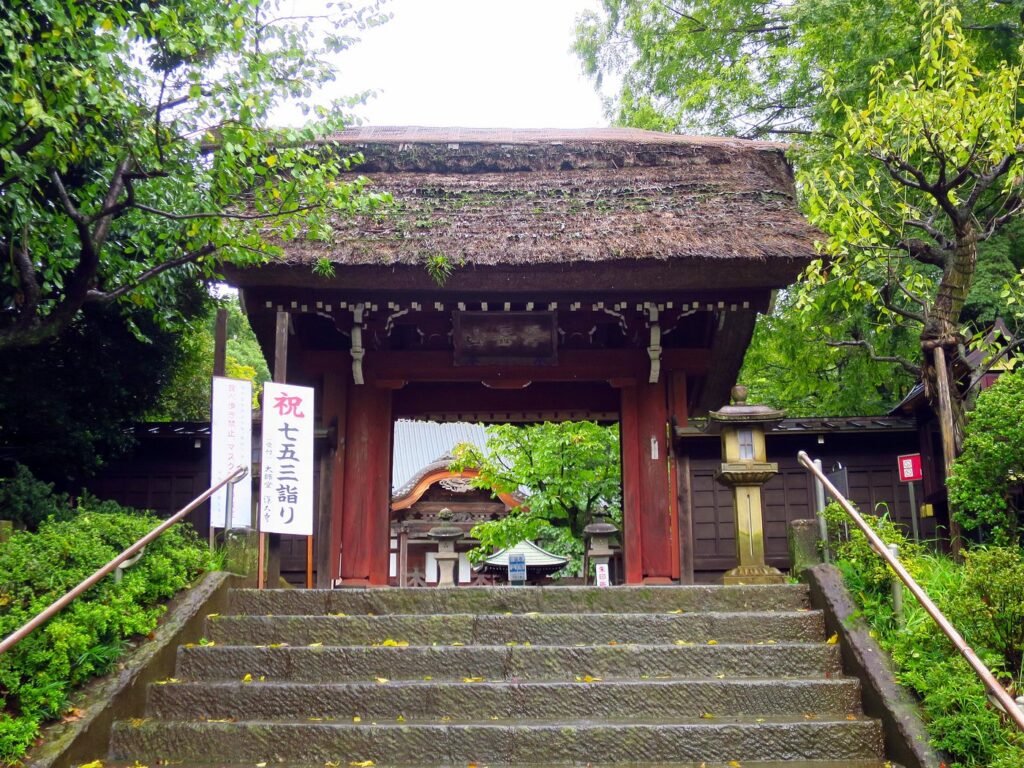
Jindaiji is Tokyo’s second-oldest temple, founded in 733. Located in leafy Chofu, it’s revered for its water deity, Jinsha Daio, and is a go-to for prayers about romance, harmony, and protection.
Its peaceful grounds, moss-covered gates, and old-fashioned atmosphere feel like you’ve wandered into Kyoto. The nearby streets are lined with soba restaurants—Jindaiji soba is a specialty here, and tasting it is practically a spiritual experience in itself.
Don’t miss the bronze seated Shakyamuni statue, designated a National Treasure.
Info
- Address: 5-15-1 Jindaijimotocho, Chofu-shi, Tokyo
- Phone: 042-486-5511
- Hours: Open 24 hours
- Closed: Open daily
- Access: About 15–30 min by bus from Chofu or Kichijoji Stations
- Admission: Free
- Website: jindaiji.or.jp
19. Showa Kinen Park (Tachikawa City)
A massive playground of flowers, fountains, and outdoor fun
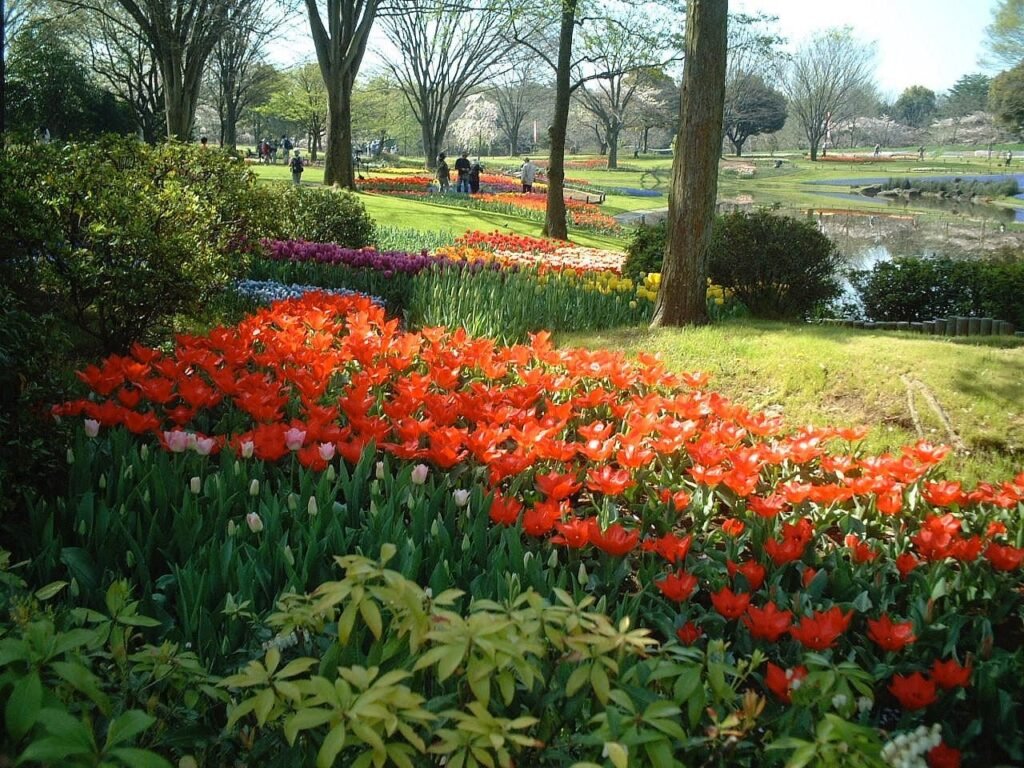
Spread across 180 hectares in Tachikawa and Akishima, Showa Kinen Park is Tokyo’s answer to Central Park. Originally built to commemorate Emperor Showa’s reign, it offers meadows, seasonal flower gardens, bonsai museums, paddle boats, wide picnic lawns, and even a trampoline forest.
From spring tulips to autumn ginkgo trees glowing gold, the park is always in bloom. Families love the bike trails and play areas, while solo travelers enjoy the calm and space to just… exist.
Info
- Address: 3173 Midoricho, Tachikawa-shi, Tokyo
- Phone: 042-528-1751
- Hours:
・Paid Zone: Mar–Oct: 9:30–17:00 / Nov–Feb: 9:30–16:30
・Free Zone: Mar/Oct: 8:30–17:00, Apr–Sep: 8:30–18:00, Nov–Feb: 8:30–16:30 - Closed: Year-end holidays, fourth Monday in Jan and the next day
- Access: 2 min walk from Nishi-Tachikawa Station (JR) or 10 min from Tachikawa Station
- Admission: Adults ¥450, Kids free
- Website: showakinen-koen.jp
20. National Museum of Nature and Science Institute for Nature Study (Minato Ward)
Tokyo’s wildest secret garden, hiding in plain sight
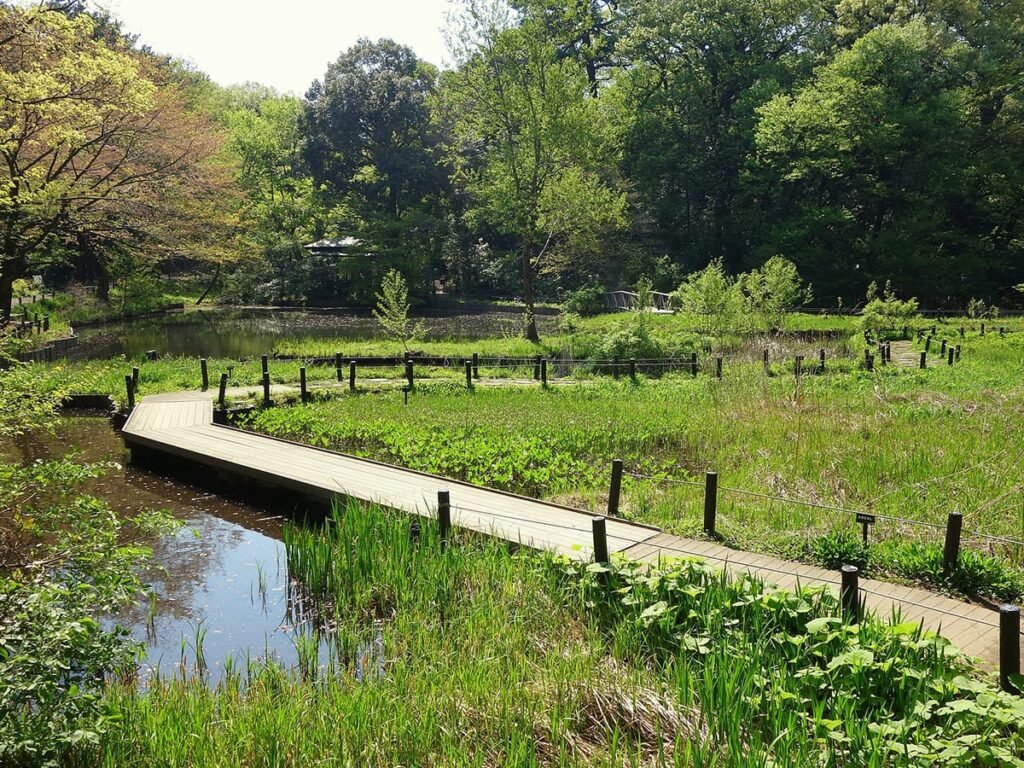
In glitzy Shirokanedai—home to fancy homes and posh cafés—you’ll find this lush pocket of preserved nature that feels like another world. Once an imperial estate, this forest is now a sanctuary for native plants, birds, bugs, and streams. Walk along winding trails under towering oaks and evergreens. Spot butterflies and frogs. Breathe deep.
It’s all part of the Nature Study section of the National Museum of Nature and Science and serves as an outdoor classroom—and a perfect place to reset.
Info
- Address: 5-21-5 Shirokanedai, Minato-ku
- Phone: 03-3441-7176
- Hours:
・Sep–Apr: 9:00–16:30 (last entry 16:00)
・May–Aug: 9:00–17:00 (last entry 16:00) - Closed: Mondays (or following day if Monday is a holiday), some holidays
- Access: 9 min walk from Meguro Station or 7 min from Shirokanedai Station
- Admission: Adults ¥320, Children (High school and under) Free
- Website: ins.kahaku.go.jp
21. Todoroki Valley (Setagaya Ward)
Tokyo’s only natural valley—quiet, lush, and completely surreal
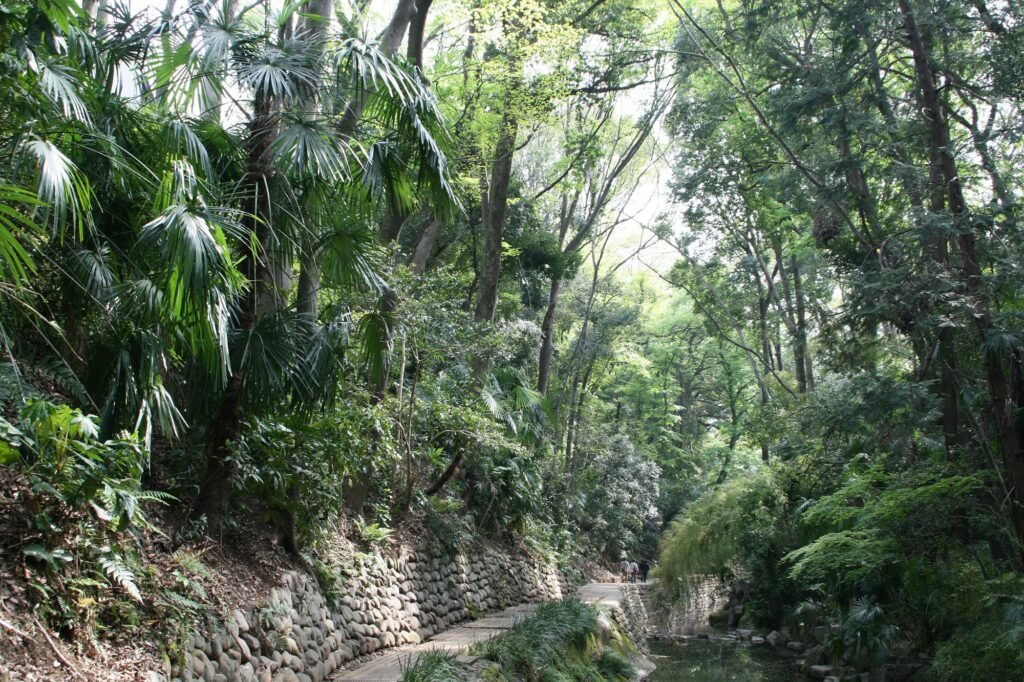
Right in the heart of a quiet Setagaya neighborhood, Todoroki Valley feels like a forest path plucked from a Studio Ghibli film. Formed by the erosion of the Yazawa River, it’s the only natural valley in Tokyo’s 23 wards.
Just a short walk from the station, the trail leads you under tall trees and over bubbling streams. Along the way, you’ll find mossy bridges, an old Japanese garden, cave tombs, and even a tiny waterfall. There’s also Todoroki Fudoson Temple nestled near the end—majestic, red-roofed, and peaceful.
Locals love it. Most tourists miss it. Don’t be one of them.
Note: As of March 2024, entry may be restricted due to fallen trees. Check the latest updates before visiting.
Info
- Address: 1-22 & 2-37/38 Todoroki, Setagaya-ku
- Phone: 03-3704-4972 (Tamagawa Park Office)
- Hours: 24 hours
・Japanese Garden section: Mar–Oct: 9:00–17:00 / Nov–Feb: 9:00–16:30 - Closed: Open daily
- Access: 3 min walk from Todoroki Station (Tokyu Oimachi Line)
- Admission: Free
- Website: Setagaya City
22. Futako-Tamagawa Rise Shopping Center (Setagaya Ward)
A riverside shopping complex with picnic vibes and stylish flair
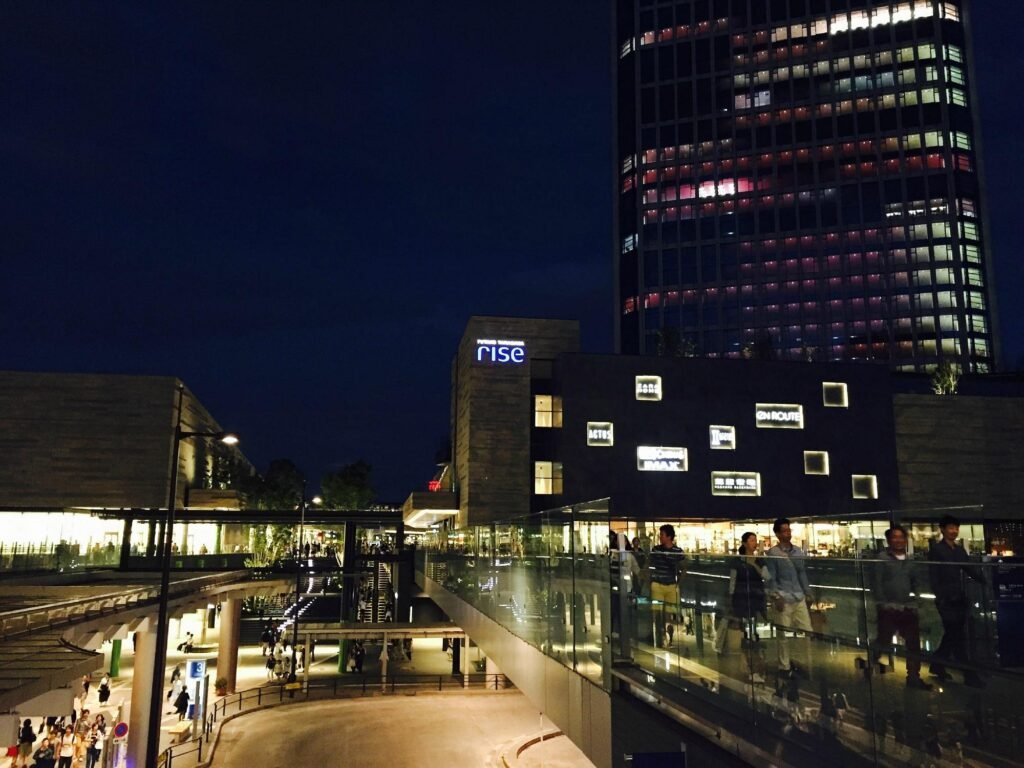
Connected directly to Futako-Tamagawa Station, this modern shopping haven is more than just a mall—it’s a lifestyle hub where Tokyo’s urban cool meets riverside calm. You’ll find fashion boutiques, design stores, and food halls with local and international flair.
Grab a takeout meal and head down to the grassy banks of the Tama River for a picnic. Or just relax and people-watch in the outdoor terraces. It’s a place where city life and nature mingle effortlessly—and kids, couples, and solo wanderers all feel right at home.
Info
- Address: 2-21-1 Tamagawa, Setagaya-ku
- Phone: 03-3709-9109
- Hours:
・Shops/Services: 10:00–20:00
・Restaurants/Cafés: from 11:00 (varies)
・Food Market: 10:00–20:00
・Tokyu Store: 10:00–24:00 - Closed: Irregular holidays
- Access: Direct from Futako-Tamagawa Station (Tokyu Den-en-toshi & Oimachi Lines)
- Admission: Free
- Website: rise.sc
23. Lake Okutama (Nishitama District)
Tokyo’s wild frontier—mountains, forests, and a pristine lake
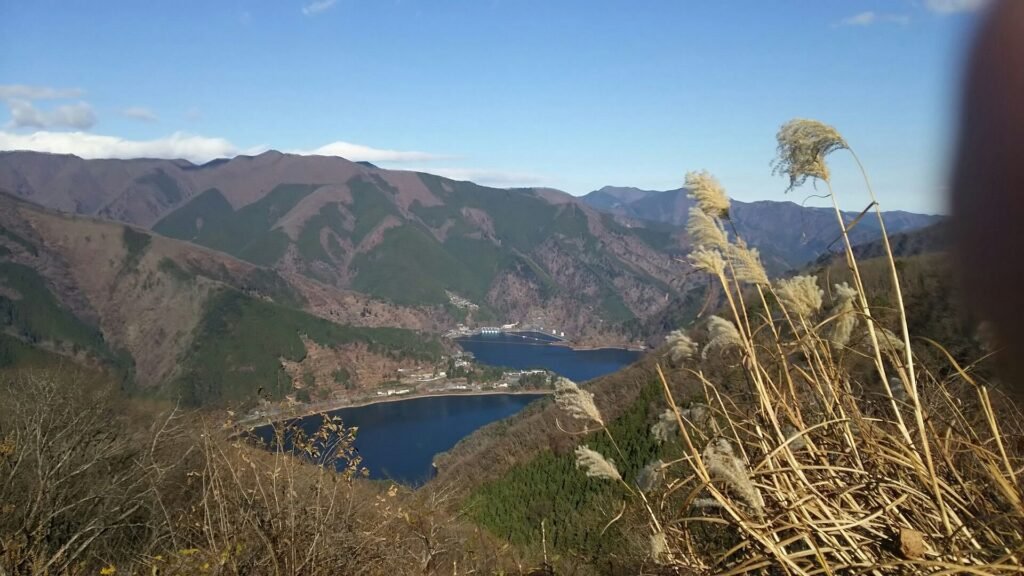
Tokyo’s western edge hides a world you’d never expect: Lake Okutama, also called Ogouchi Reservoir, is a massive man-made lake surrounded by rugged mountains and dense forests. Created in 1957, it supplies about 20% of Tokyo’s drinking water and doubles as a peaceful retreat far from the city chaos.
It’s a place for hiking, boating, nature walks, or simply gazing at the changing seasons—from fiery autumn colors to delicate spring blossoms. Don’t miss the floating bridge walkway or the views from the Ogouchi Dam observation tower.
Pure air. Crystal water. Absolute calm.
Info
- Address: Hara, Okutama-machi, Nishitama-gun, Tokyo
- Phone: N/A
- Hours: Open 24 hours
- Closed: Open daily
- Access: Immediate from Okutama-ko Bus Stop (via Nishi Tokyo Bus from Okutama Station)
- Admission: Free
